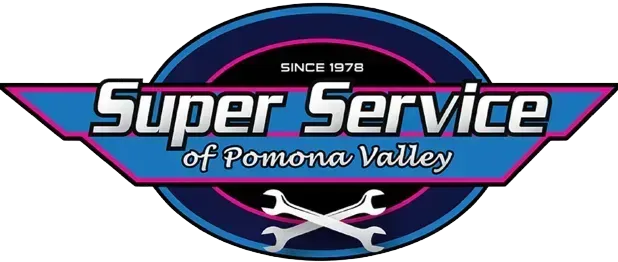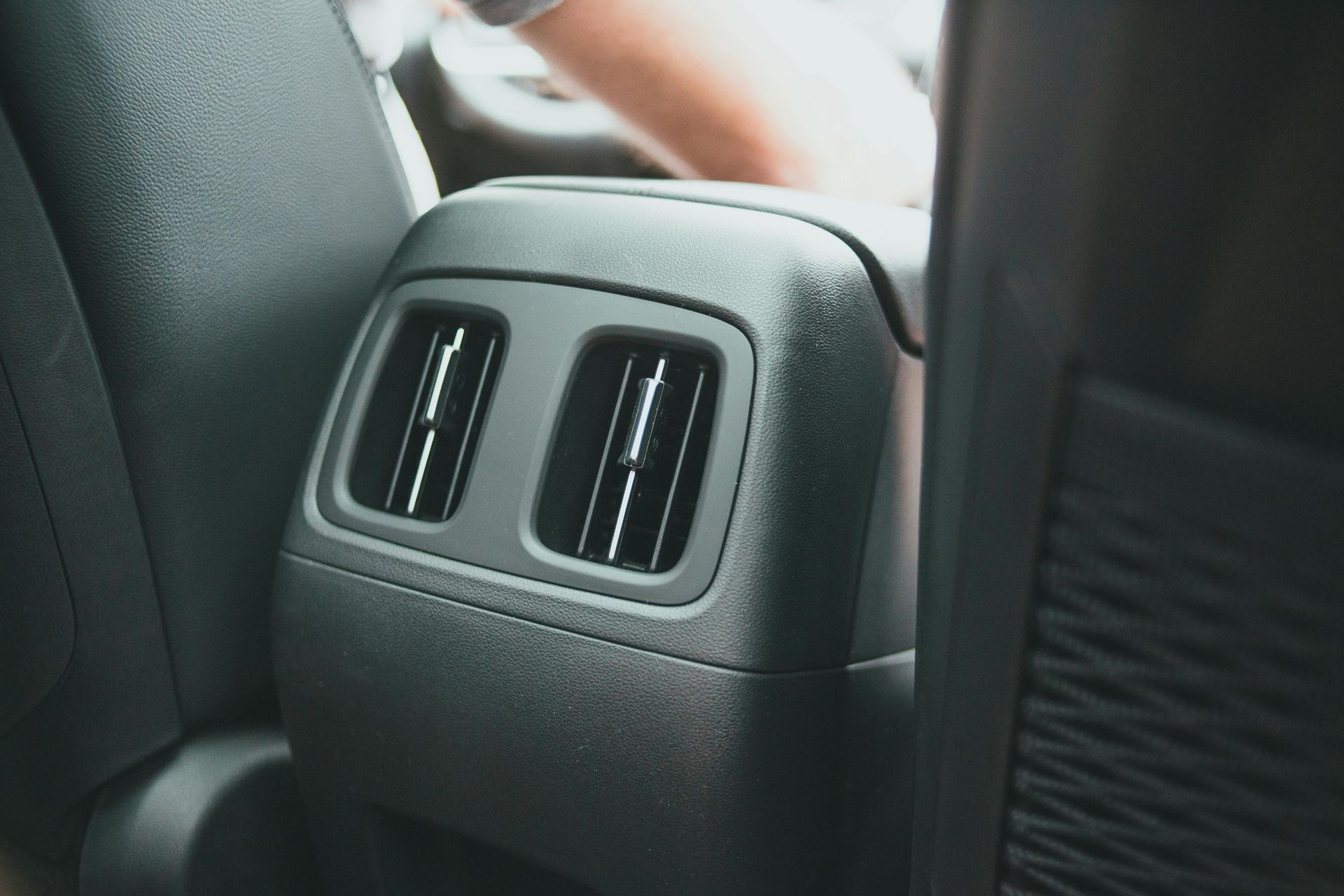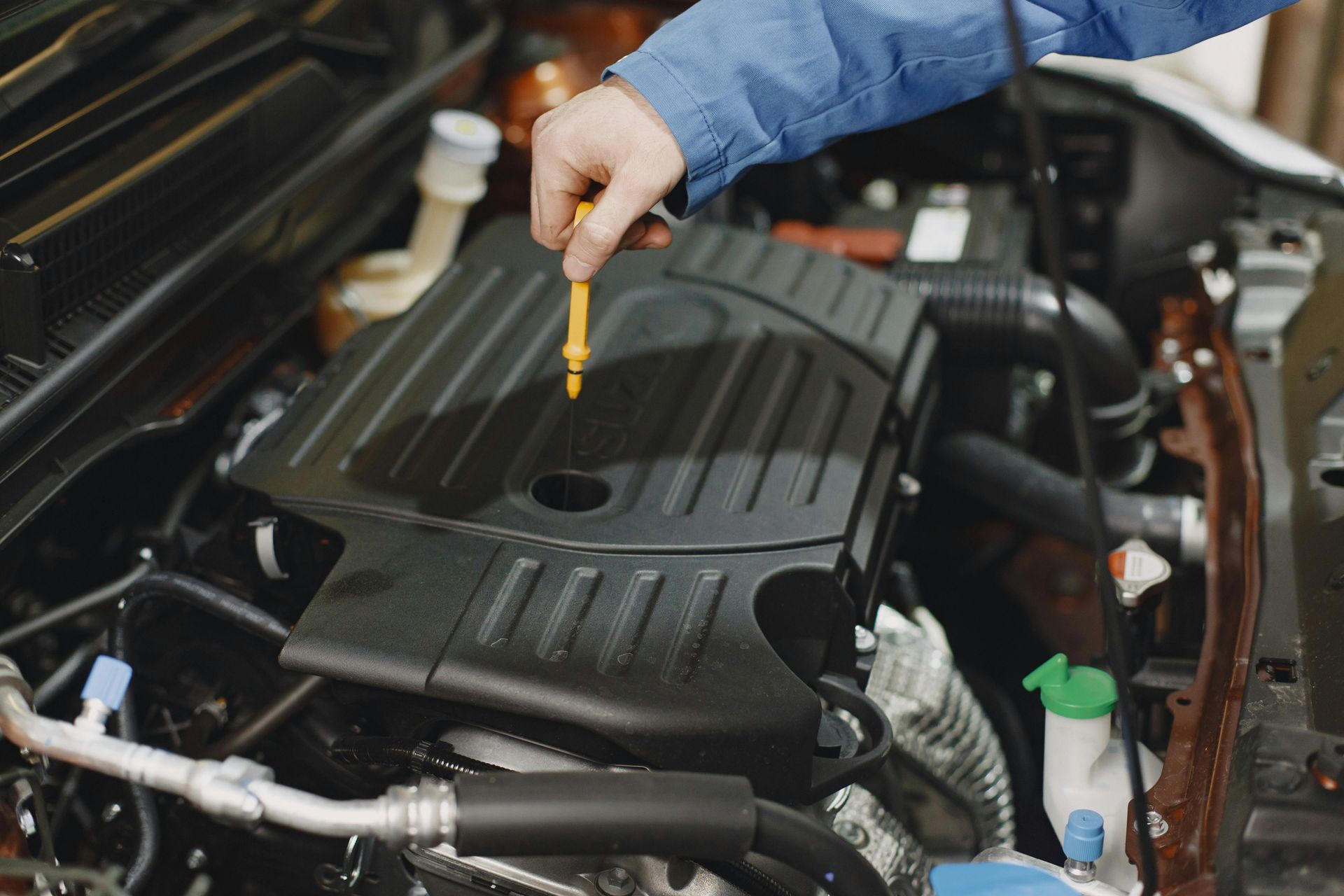
Taylor Co Automotive is now Super Service of Pomona Valley!
Blog Layout
Why It's Important To Get An Oil Change On A Toyota Camry Every 5,000 Miles
January 16, 2023
When Does My Toyota Need An Oil Change?
Introduction
If you're like most people, you've got a lot going on in your life. You probably don't have time to do all of the research required to figure out when and how often your car needs oil changes, but that doesn't mean it's not important! In this post we'll break down how often your vehicle should get its oil changed, what kind of oil you should use for optimal performance, and why regular maintenance is so important for keeping your car running smoothly for years to come.Oil changes are recommended every 5,000 miles.
Oil changes are recommended every 5,000 miles. That’s about twice a year, but you can always check your owner’s manual for specific details. Oil changes are good for the engine and the car because they help keep it running smoothly and prevent certain problems from occurring. If you skip an oil change or don’t get one done often enough, old engine oil breaks down over time and can cause issues like sludge build-up or even catastrophic failure of your vehicle's internal parts. Oil changes help you avoid engine problems by keeping them clean and well lubricated—they also lubricate moving parts like pistons so they run freely without grinding against each other too much (or at all). Sludge forms when contaminants get into old viscosity levels; this makes it harder for these objects inside an engine to move properly through narrow passages found in many vehicles today--especially those made before 1991!Do not skip an oil change.
Oil is the lifeblood of your engine. It lubricates, cools, and cleans as it circulates. If you don't change it regularly, your engine will die. In fact, changing the oil regularly is one of the best ways to extend the life of your car—and it's a lot cheaper than replacing an entire engine! In addition to extending the lifespan of your car's engine (and thus saving you money), regular oil changes also help ensure safety: dirty or low-quality oil can cause excessive wear on internal parts which can lead to breakdowns or malfunctions.Have a mechanic replace your air and cabin filters at least every 15,000 miles.
If you feel like you’re spending more money on car maintenance than ever, it might be time to start paying attention to those little items that wear out faster than the big ones. There are two filters that can wear out or get dirty so frequently that they need replacing once every 15,000 miles: the air filter and cabin filter. Air filters are designed to keep dust, pollen and other particles from entering your vehicle's engine intake manifold as your car sucks in air through its vents. Cabin filters remove dust and other particulates from the air that circulates throughout your vehicle's interior—and if it isn't replaced regularly, these particles will end up sticking to everything inside your ride and making it look like something straight out of a post-apocalyptic movie set in a barnyard instead of a modern luxury automobile with leather seats and climate control features galore!Check your service records and other records from the previous owner to see when and how often the vehicle was serviced in the past.
A great way to find out when your Toyota needs an oil change is by checking the service records and other records from the previous owner. If you can't find any documentation of regular oil changes, it's important to ask them why they didn't take their vehicle in for this maintenance or if they had an oil change at all. If you do find evidence that someone had regular maintenance performed on the car, this could mean that less frequent oil changes are needed.Don't skip service inspections and don't wait for problems with your car to get worse to schedule an oil change.
When it comes to your car, you should never risk skipping service inspections or waiting for problems to get worse before scheduling an oil change. Oil changes are important for your car's health, and they should be a regular part of any routine maintenance check-up. Your car will send you plenty of warning signs that it needs an oil change—a burned out light bulb means something's wrong with the engine; a funny smell means something is burning; poor gas mileage can indicate that your engine is dirty and needs more power to run efficiently (and cleanly). So whether you're driving around town or taking a trip across country, don't risk it by neglecting an important task like changing the oil in your vehicle! If anything does go awry with your car after an extended period without servicing it properly, there may not be much we can do for fixing those problems now since so much damage has already been done. But there are still many benefits associated with having proper maintenance done consistently at least once every three months:- You'll save time because repairing broken parts will cost less than having them replaced entirely later on down the line when they've already been damaged beyond repair due to neglecting regular maintenance procedures such as changing fluids regularly throughout each year's span instead of just once when needed annually instead.*
A car's oil change should be done every 3000-5000 miles depending on the oil used and the consumption of oil by the engine
The simple answer is that every 3000-5000 miles you should change the oil in your car. There are a few factors that will determine how often an oil change is needed, such as the type of oil you use and the engine itself. If you drive a lot, then your car uses more oil than someone who doesn't drive much. This means that if you drive more than 10,000 miles per year (roughly 1550 miles per month), then it's better for your engine to have frequent changes of its fluids including oil and transmission fluid (if applicable). If this isn't feasible for whatever reason (cost or time), then I recommend doing it at least once per year so that everything stays healthy and running smoothly. The other factor that comes into play when deciding how often to change your car's oil is what type of driving conditions exist where you live. For example: if there are lots of hills or stop-and-go traffic jams where I live (Los Angeles), then my vehicle loses more power due to heat build up caused by constant idling while sitting still on steep inclines; thus it's important for me do regular maintenance like changing fluids frequently throughout my life here because those two things together cause wear & tear on all components under stress like any other part inside my engine."The main reason your vehicle needs a new oil pan is because of a leak in the rubber gasket. These leaks are sometimes undetectable by the owner of the car because there are covers protecting the underbelly of the vehicle which collect the oil. Leaks that go on for too long cause catastrophic engine failure, so get your oil changes done at least once a year with a digital inspection
- The main reason your vehicle needs a new oil pan is because of a leak in the rubber gasket. These leaks are sometimes undetectable by the owner of the car because there are covers protecting the underbelly of the vehicle which collect the oil. Leaks that go on for too long cause catastrophic engine failure, so get your oil changes done at least once a year with a digital inspection
- Another reason you need to replace your oil pan is if it has been damaged by other vehicles or objects. If a rock got hit and fell into your engine during an accident, it could have chipped away at one of its components, including your oil pan.
The dipstick in your engine is a helpful tool to see how much oil your engine is consuming. It's a good idea to check the dipstick regularly.
When you check your oil level, you'll use a dipstick. It's important to know what the markings on your car's dipstick mean and how to read them. The first thing to do is check the level of oil in your engine. To do so, remove the oil filler cap and insert the dipstick all the way into its tube until it touches bottom, then pull it out slowly while keeping an eye on where on its length oil has collected along with water if present before wiping off any excess with a rag or paper towel before reinserting into tube fully again The amount of wetness that appears on this gauge will tell you two things: how much oil is left in your car and whether there are any leaks that need attention immediately! If there is no liquid coming up at all after passing through any cracks around seals or gaskets/bolts then chances are good everything else is fine but if some fluid comes out when checking levels then you should go ahead head over to local mechanic shop because something definitely needs fixed ASAPAutomobile maintenance can be scary, but it doesn't have to be!
Automobile maintenance can be scary, but it doesn't have to be! If you're not sure when your car needs an oil change, there are some simple things you can do at home. The first is checking your oil level regularly. If the sticker on your dashboard or in your owner's manual states that you need to change the oil every 5,000 miles or 6 months (whichever is shorter), then check it every time you fill up the tank with gas. If it seems like there's less than a quarter inch of oil at the bottom of the dipstick tube while driving around town, chances are good that it needs changing soon; if there's more than half an inch left after driving long distances at high speeds on freeways and highways for several hours over two days without stopping for fuel or food breaks then chances are good that changing isn't necessary just yet. If this method isn't working for you though—maybe because you're always forgetting about doing so—you might want to invest in an inexpensive tool called an "oil indicator." This device uses UV light from LEDs mounted inside its casing which shines through transparent plastic tubing connected between two sections separated by a porous filter allowing only small amounts of fluid through at any given time; when those fluids come into contact with dye molecules embedded within them they fluoresce brightly!Conclusion
With these tips, you can feel confident in knowing when it's time to get your car checked. Even if you don't have the tools or knowledge to do some of these inspections yourself (like checking the oil level), you can always take your vehicle into a mechanic or dealership and have them do it for you. With all of this information at hand, even if something goes wrong with your car, we're sure that there is no need to panic! By Bob Cornwall
•
April 2, 2025
When it comes to road safety, one of the most important systems in your vehicle is the brake system. The ability to stop quickly and efficiently can be the difference between avoiding an accident and being involved in one. While brakes are designed to last for many miles, they are not invincible, and they require regular maintenance and inspections to ensure they continue to perform optimally. At Super Service of Pomona Valley, we understand how vital it is to maintain your vehicle's brake system. Whether you're driving on highways, busy streets, or rural roads, the condition of your brakes directly impacts your safety and the safety of those around you. In this blog, we’ll explore why regular brake inspections are crucial for road safety, what to expect during a brake inspection, and how often you should get your brakes checked to keep your vehicle in top condition. The Importance of Brake Inspections for Road Safety Brakes are one of the most critical components of your vehicle, yet they are often taken for granted. Most drivers don’t think about their brakes until they start making noise or the vehicle feels less responsive when stopping. However, by this point, the brake system may already be in trouble. Regular brake inspections can catch problems early, preventing costly repairs and, more importantly, avoiding potentially dangerous situations. Here are a few reasons why brake inspections are essential for road safety: 1. Prevents Brake Failure The most obvious reason for regular brake inspections is to prevent brake failure. Brakes wear down over time due to constant use, but factors like driving habits, weather conditions, and the type of vehicle can speed up this process. Without regular inspections, worn brake pads, damaged brake lines, or malfunctioning brake fluid systems can go unnoticed, leading to complete brake failure. A sudden failure can be catastrophic, especially in emergency situations or when driving at high speeds. 2. Ensures Quick and Effective Stopping Power Your vehicle’s stopping power depends on how well your brakes are maintained. If brake pads are too thin or the brake fluid is low, the brakes will not function effectively, increasing your stopping distance. In an emergency situation, every fraction of a second counts, and compromised brakes can result in delayed stops, increasing the chances of an accident. Regular brake inspections help ensure that your vehicle can stop quickly and efficiently when needed. 3. Enhances Your Vehicle’s Longevity Brake components such as pads, rotors, and calipers all have a limited lifespan, but with proper maintenance, they can last much longer. Regular inspections not only identify existing issues but also allow your mechanic to replace components before they wear down too much. By taking care of minor issues early, you can avoid expensive repairs later and ensure that your braking system lasts longer. 4. Increases Confidence While Driving Driving with the knowledge that your brakes are functioning properly gives you peace of mind. When you drive without worrying about brake issues, you can focus more on the road, other drivers, and maintaining a safe speed. On the other hand, if you’re unsure about the condition of your brakes, you may be hesitant to drive in certain conditions, particularly when emergency braking is needed. What Happens During a Brake Inspection? When you bring your vehicle in for a brake inspection at Super Service of Pomona Valley, our certified technicians will thoroughly examine your entire brake system to ensure that everything is functioning as it should. Brake inspections are typically quick and non-invasive, but they can reveal a variety of issues that may require immediate attention. Here are some of the steps involved in a typical brake inspection: 1. Brake Pad Check Brake pads are one of the most important components of the braking system, and they experience the most wear and tear. During an inspection, a technician will check the thickness of the brake pads. If they are too thin (usually less than 1/4 inch), it’s time to replace them. Worn-out pads can damage the rotors and significantly reduce the effectiveness of your brakes. 2. Brake Fluid Inspection Brake fluid is essential for transmitting the force from your foot on the brake pedal to the brake pads. If the brake fluid level is low or the fluid has become contaminated, your braking system will not perform as expected. Our technicians will check the brake fluid level and ensure that it’s clean and free from any moisture or debris. If necessary, they will recommend a brake fluid flush to keep your brakes operating optimally. 3. Rotor Inspection Brake rotors play a key role in the braking process by providing the surface against which the brake pads press to slow down the vehicle. Over time, rotors can become worn, scored, or warped. A technician will inspect the rotors for any signs of damage, such as grooves or cracks, which can lead to uneven braking or noise when stopping. In some cases, rotors can be resurfaced, but if they are too damaged, they may need to be replaced. 4. Brake Line and Hose Inspection The brake lines and hoses are responsible for carrying brake fluid to the brake components. If these lines are cracked, corroded, or leaking, it can result in brake failure. During an inspection, the technician will check the brake lines for any signs of wear and tear and recommend replacement if necessary. 5. Caliper and Hardware Check The brake calipers are responsible for squeezing the brake pads against the rotors to create friction and slow the vehicle. The technician will inspect the calipers to ensure they are operating smoothly and not sticking, which can cause uneven braking and premature pad wear. The caliper hardware will also be checked to ensure it is functioning properly. Signs That Indicate You Need a Brake Inspection It’s essential to be aware of any signs that your brakes may be failing so that you can schedule an inspection as soon as possible. Some of the most common signs that your brakes need attention include: 1. Squealing or Grinding Noises One of the most common indicators that your brakes need attention is hearing squealing or grinding noises when applying the brakes. Squealing often occurs when the brake pads are worn down, while grinding noises can indicate that the brake pads are completely worn through and the metal components are rubbing together. 2. Soft or Spongy Brake Pedal If you notice that your brake pedal feels soft or spongy when pressed, it could be a sign of low brake fluid, air in the brake lines, or an issue with the master cylinder. In any case, this is a serious issue that requires immediate attention. 3. Vibrations or Pulling If your steering wheel or brake pedal vibrates when you apply the brakes, or if your vehicle pulls to one side, it could indicate uneven brake pad wear or issues with the rotor. These problems can make it difficult to brake effectively and safely. 4. Increased Stopping Distance If you find that it takes longer than usual to bring your vehicle to a complete stop, it’s a clear sign that your brake system is not functioning properly. A longer stopping distance can be dangerous, especially in emergency situations. 5. Warning Lights Modern vehicles come equipped with brake system warning lights that alert you to potential issues. If your brake light or ABS light comes on, it’s time to schedule an inspection. How Often Should You Get Your Brakes Inspected? The frequency of brake inspections depends on a variety of factors, including how often you drive, the type of driving you do, and the condition of your vehicle. However, a general rule of thumb is to have your brakes inspected at least once a year or every 12,000 miles. If you notice any of the signs mentioned above, you should get your brakes inspected immediately, even if it hasn’t been a full year since your last inspection. For vehicles that are used in more demanding conditions, such as frequent city driving, towing, or mountainous driving, brake inspections may need to be performed more often. Your mechanic can provide a more specific recommendation based on your driving habits and the condition of your brake system. Why Choose Super Service of Pomona Valley for Brake Inspections? At Super Service of Pomona Valley, we take pride in offering reliable, expert brake inspection services to keep you and your family safe on the road. Our experienced technicians are equipped with the latest diagnostic tools to ensure your brakes are functioning optimally. Whether you need a simple brake inspection, a fluid flush, or a complete brake repair, we have you covered. We are committed to delivering high-quality service with a focus on safety, reliability, and customer satisfaction. Our shop is certified by AAA, ASE, and RepairPal, so you can trust that your vehicle is in capable hands. To schedule your brake inspection today, visit Super Service of Pomona Valley or call us. Don’t wait until your brakes are failing—ensure your safety and avoid costly repairs with regular brake inspections. Final Thoughts Brake inspections are critical for ensuring road safety and preventing costly repairs down the line. Regular inspections not only help maintain the longevity of your brake system but also give you peace of mind knowing that your vehicle is safe and reliable. By addressing minor issues early and staying on top of maintenance, you can ensure that your brakes will be ready to perform when you need them most. Remember, at Super Service of Pomona Valley, we are dedicated to keeping you safe on the road. Schedule your brake inspection today and drive with confidence!
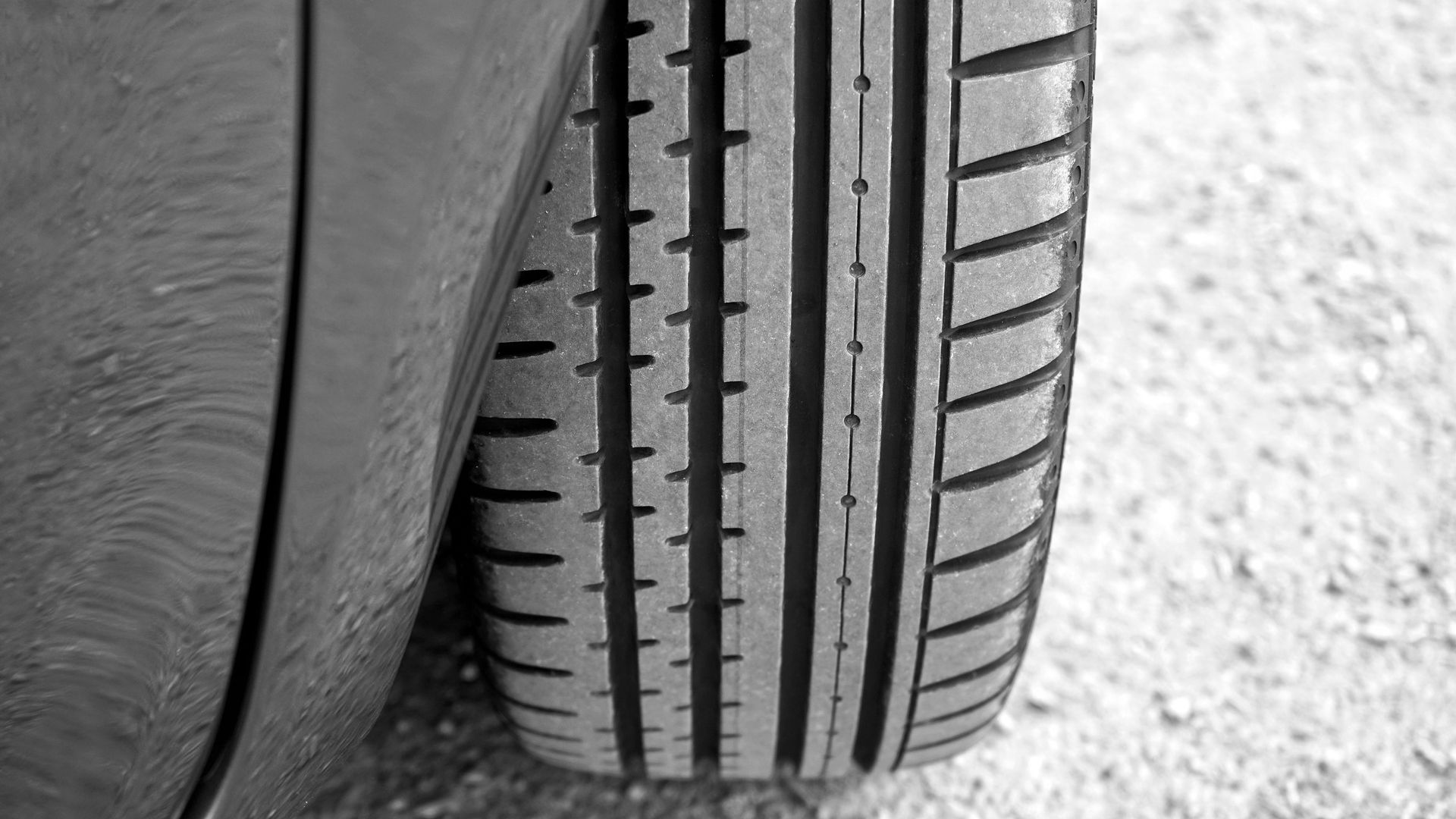
By Bob Cornwall
•
April 1, 2025
When it comes to keeping your vehicle driving smoothly, two important factors often come up: wheel alignment and tire balance. While these terms are sometimes used interchangeably, they are actually two different services that play a critical role in your car’s handling, tire wear, and overall safety. At Super Service of Pomona Valley, we help drivers understand the difference between alignment and balance and why both are essential for maintaining a safe and comfortable ride. What Is Wheel Alignment? Wheel alignment refers to adjusting the angles of your vehicle’s wheels so they meet the manufacturer’s specifications. Over time, driving on rough roads, hitting potholes, or even normal wear and tear can cause misalignment. When your wheels are out of alignment, you may notice uneven tire wear, pulling to one side, or a crooked steering wheel when driving straight. Proper alignment ensures your tires make even contact with the road, improving handling, fuel efficiency, and tire lifespan. A routine wheel alignment not only enhances your driving experience but also prevents costly repairs down the road. If you notice your vehicle drifting or your tires wearing unevenly, it may be time to schedule an alignment check at Super Service of Pomona Valley. What Is Tire Balancing? Tire balancing, on the other hand, corrects weight imbalances in your tires. Over time, tires can develop small weight differences due to road conditions and wear. When tires are unbalanced, you might feel vibrations in the steering wheel, seat, or floor of your car, especially at higher speeds. During a tire balancing service, small weights are added to your wheels to evenly distribute weight and ensure a smooth ride. This process prevents premature tire wear and reduces strain on your suspension components. Regular tire balancing, especially when rotating your tires or installing new ones, helps maintain ride comfort and overall vehicle stability. How Do Alignment and Balance Work Together? While alignment and balance are separate services, they work together to improve your vehicle’s handling and performance. A properly aligned vehicle with balanced tires drives more smoothly, reduces stress on suspension components, and extends the life of your tires. Neglecting either service can lead to poor handling, decreased fuel efficiency, and even safety concerns. At Super Service of Pomona Valley, we recommend checking your wheel alignment and tire balance regularly, especially if you notice uneven tire wear, vibrations, or steering issues. Staying on top of these maintenance tasks keeps your car in peak condition and ensures a safer driving experience. Schedule Your Alignment or Tire Balancing Service Today If your car is pulling to one side, your steering wheel feels off-center, or you’re experiencing vibrations while driving, it may be time for an alignment or tire balancing service. Our ASE-certified technicians at Super Service of Pomona Valley provide precise wheel alignments and expert tire balancing to keep your vehicle driving smoothly. Visit us at 348 E. Foothill Blvd, Pomona, CA, or call us at (909) 316-6166 to book your appointment. Learn more at www.superserviceofpomonavalley.com .
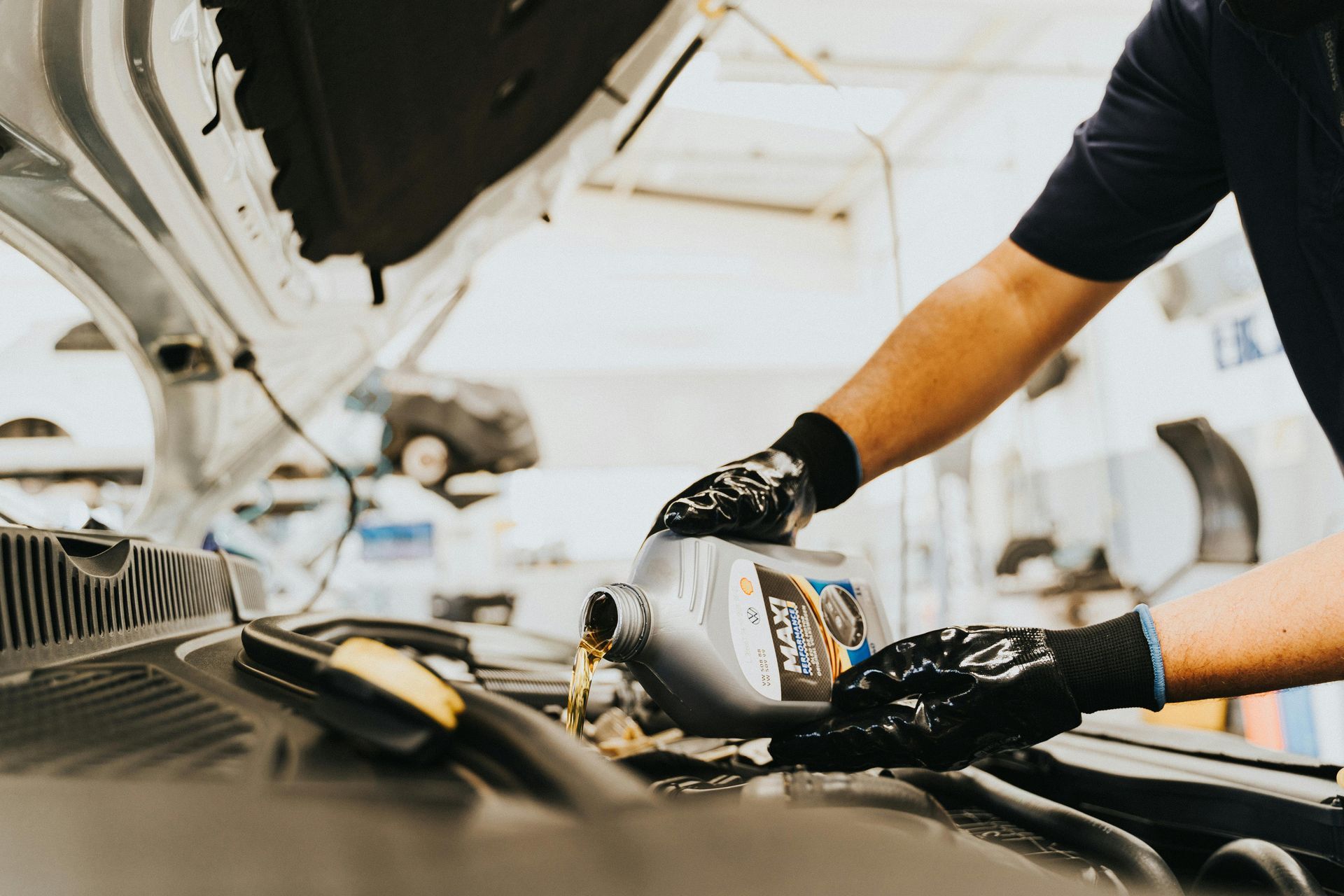
By Bob Cornwall
•
January 1, 2025
Regular oil changes are one of the most important steps in keeping your car running smoothly and extending its lifespan. At Super Service of Pomona Valley, we make oil changes stress-free and efficient with our team of ASE-certified technicians. Below, we’ve outlined five essential tips to help you get the best out of your oil change service. Why Oil Changes Matter Oil changes are crucial for keeping your engine healthy, reducing wear and tear, and ensuring peak performance. Skipping or delaying oil changes can lead to costly repairs, decreased fuel efficiency, and engine failure. At Super Service of Pomona Valley, we’ve been providing trusted oil change services to Pomona and the surrounding communities for over 45 years. 1. Follow the Manufacturer’s Recommendations Your vehicle manufacturer provides a recommended oil change interval in your owner’s manual. Most modern vehicles require an oil change every 5,000–7,500 miles, but this can vary depending on your driving habits and oil type. Consult your manual or visit Super Service of Pomona Valley, and we’ll help you stay on schedule. 2. Choose the Right Oil for Your Car Not all motor oil is created equal. Your vehicle’s performance depends on selecting the correct oil type—whether synthetic, synthetic blend, or conventional. Our certified technicians can guide you through the process, ensuring your car gets the right oil for optimal performance and longevity. 3. Replace the Oil Filter Every Time The oil filter removes contaminants that build up over time, keeping your engine clean and running smoothly. A clogged oil filter can cause significant damage, which is why we always replace it during your oil change at Super Service of Pomona Valley. 4. Check Oil Levels Between Changes Keep an eye on your oil levels between service intervals. If you notice a significant drop in levels, it may indicate a leak or engine problem. Checking the dipstick regularly ensures peace of mind. Stop by Super Service of Pomona Valley for a quick inspection if anything seems off 5. Trust a Professional for Your Oil Change DIY oil changes can be messy, time-consuming, and may not catch potential issues. Our oil change service at Super Service of Pomona Valley includes more than just fresh oil—we perform a thorough inspection to identify early signs of wear and tear. Plus, we use eco-friendly practices to properly dispose of used oil. Your Trusted Oil Change Partner in Pomona Valley At Super Service of Pomona Valley, we’re committed to keeping your vehicle running at its best. From regular maintenance to major repairs, we provide expert services backed by a 3-year/36,000-mile warranty and decades of experience. Our location at 348 E. Foothill Blvd. makes it convenient for Pomona drivers to access our trusted auto repair services. Schedule Your Oil Change Today! Don’t wait until it’s too late—book your next oil change today at Super Service of Pomona Valley. We’ll ensure your engine is running smoothly and your vehicle is road-ready. Schedule online here or give us a call at (909) 316-6166.
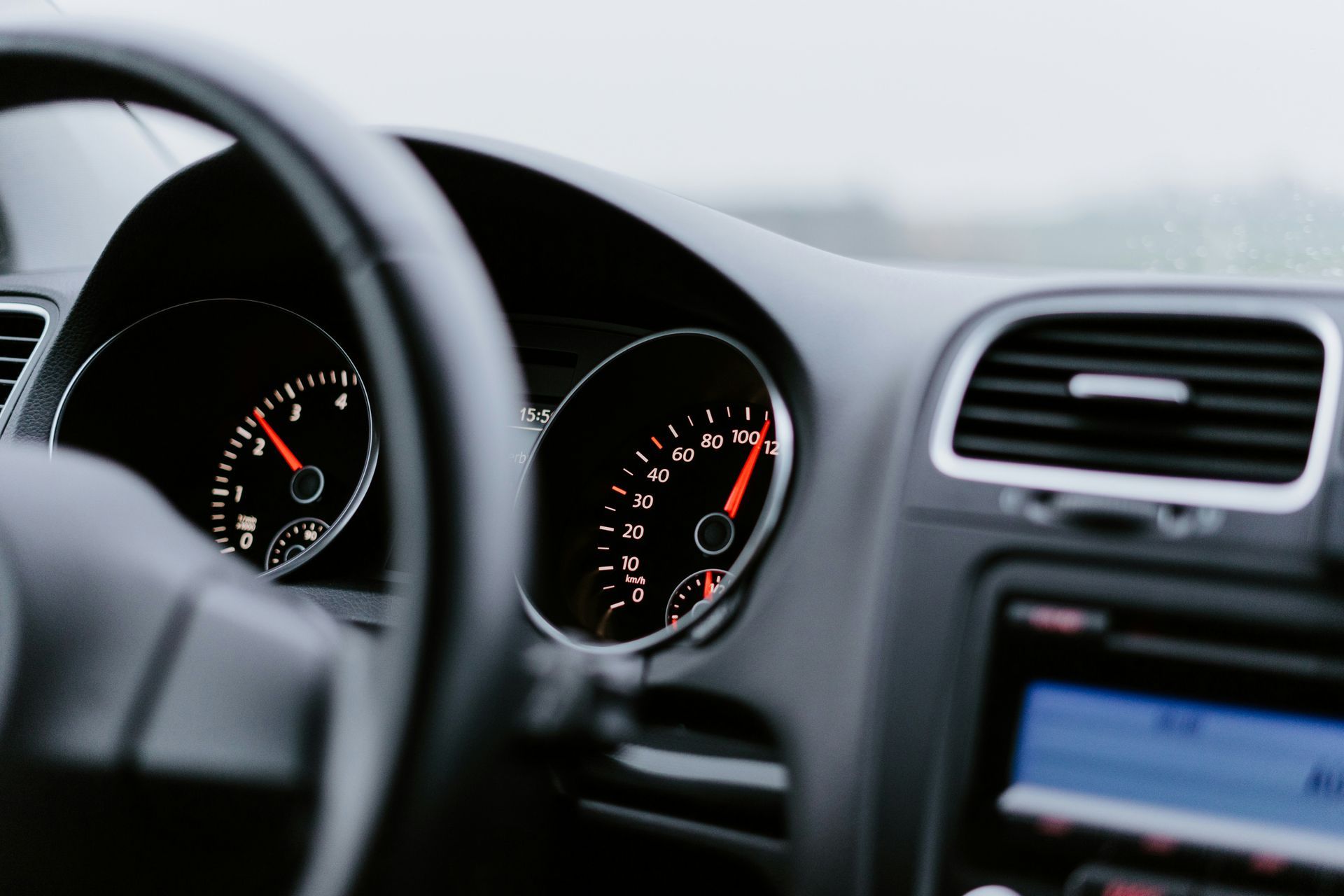
By Bob Cornwall
•
November 1, 2024
Thanksgiving Travel Tips: Ensuring a Gratitude-Filled Journey Thanksgiving is a time for family, friends, and celebration. But if you’re planning to travel this holiday season, it can also be stressful. With crowded roads and airports, it’s essential to prepare for a smooth journey. To ensure your holiday travel is seamless, make sure your vehicle is in top shape by getting a pre-trip inspection. This includes checking your brakes, fluids, and tires to avoid any unexpected issues on the road. In this blog, we’ll cover essential Thanksgiving travel tips to keep your trip safe and stress-free. Need to get your vehicle checked before heading out? Schedule an appointment with Super Service of Pomona Valley here. Preparing Your Vehicle for a Long Trip Before hitting the road, ensure your vehicle is ready for the journey ahead. This can help prevent breakdowns and keep you safe during one of the busiest travel seasons. Get your brakes inspected. Whether you’re driving long distances or navigating heavy traffic, functional brakes are crucial. Worn-out brake pads can reduce stopping power, especially when traveling through busy areas. Next, check your vehicle’s fluids. Engine oil, coolant, and brake fluid levels should be optimal to prevent overheating and mechanical issues. Super Service of Pomona Valley offers comprehensive fluid checks to ensure your car is road-ready. Finally, inspect your tires. Proper tire inflation, tread depth, and alignment are essential for safety and fuel efficiency. With fluctuating weather conditions, well-maintained tires can help prevent blowouts or skidding. Navigating Thanksgiving Traffic with Ease Thanksgiving is notorious for traffic jams, but a few strategies can help you navigate the roads with less stress. First, plan your trip in advance. Use apps or websites to monitor traffic conditions and determine the best time to leave. Consider traveling during off-peak hours, such as early in the morning or late at night, to avoid congestion. Bring an emergency kit. From minor accidents to flat tires, having a well-stocked emergency kit can help you handle unexpected events. Make sure your kit includes jumper cables, a spare tire, a first-aid kit, and basic tools. Lastly, stay patient and alert. With more drivers on the road, defensive driving is key to preventing accidents. At Super Service of Pomona Valley, we recommend taking breaks on long drives to reduce fatigue and maintain focus. Making Your Journey Comfortable While car maintenance is essential, making your journey comfortable for passengers is just as important. Pack snacks and drinks to reduce the need for frequent stops. A cooler with easy-to-eat food can save time and keep everyone happy. Bring along blankets and pillows for extra comfort, especially on longer trips. Keep your passengers entertained. Audiobooks, podcasts, and road trip games can make the time pass quicker. For families traveling with kids, prepare activities to keep them engaged and avoid restlessness. Lastly, ensure your vehicle’s climate control is working properly. A malfunctioning heater or air conditioner can make your trip uncomfortable, especially during the colder season. If you’re unsure, let us at Super Service of Pomona Valley inspect your vehicle’s HVAC system before your trip. Safe Travels with Super Service of Pomona Valley As you prepare for Thanksgiving, don’t let car trouble interrupt your holiday plans. With routine maintenance, a little planning, and the right travel tips, you can enjoy a safe and smooth journey to your destination. Super Service of Pomona Valley offers pre-trip inspections to ensure your car is in top shape for holiday travel. Schedule your appointment today here, and travel with peace of mind this Thanksgiving season.

By Bob Cornwall
•
September 1, 2024
As the leaves change color and temperatures drop, it’s time to think about seasonal maintenance for your vehicle. Taking care of your car now can save you money and prevent costly repairs down the road . In Pomona Valley, where the fall season brings cooler mornings and occasional rain, it’s essential to ensure your car is ready for these changes. At Super Service Auto Shops in Pomona Valley, we offer a range of services that not only keep your car running smoothly but also help you stick to your budget. Schedule your fall maintenance today. Why Is Fall Maintenance Important for Your Vehicle? Fall is a transitional season, and it’s the perfect time to address any lingering maintenance issues before winter arrives. During the summer, your car may have endured extreme heat, which can affect everything from your battery to your tires. Regular fall maintenance helps ensure your vehicle remains reliable and efficient, particularly as the weather cools and driving conditions change . Simple tasks like checking your tire pressure, inspecting your brakes, and replacing wiper blades can make a significant difference in your car’s performance. At Super Service Auto Shops in Pomona Valley, our expert technicians can handle all of these tasks and more, ensuring your car is ready for the fall season. How Can Seasonal Maintenance Save You Money? Preventive maintenance is one of the best ways to avoid unexpected breakdowns and costly repairs. By addressing potential issues early, you can prevent them from becoming more severe—and expensive—problems later on. For example, replacing worn brake pads now is much cheaper than replacing a damaged rotor later . Similarly, ensuring your tires are properly inflated and aligned can improve fuel efficiency, saving you money at the pump. At Super Service Auto Shops in Pomona Valley, we offer affordable maintenance packages that are designed to keep your car running smoothly while protecting your wallet. Regular maintenance is an investment in your vehicle’s longevity and your financial peace of mind. What Maintenance Tasks Should Be Prioritized This Fall? As you prepare your vehicle for fall, there are several key areas to focus on: Battery Check : Cooler temperatures can affect your battery's performance. Have it tested to ensure it’s holding a charge. Tire Inspection : Check for proper inflation, tread wear, and consider rotating your tires to extend their lifespan. Brake Inspection : Ensure your brakes are in good condition, especially if you've experienced any issues like squeaking or longer stopping distances. Wiper Blades : Replace worn wiper blades to ensure clear visibility during fall rain showers. At Super Service Auto Shops in Pomona Valley, we can handle all these maintenance tasks and more, ensuring your vehicle is ready for the season ahead. Save This Fall with Super Service Auto Shops in Pomona Valley As the season changes, don’t let car maintenance fall by the wayside. Take advantage of our seasonal maintenance services at Super Service Auto Shops in Pomona Valley to keep your car in top shape without breaking the bank . Our team is here to help you prepare for fall and beyond with expert care and unbeatable value. Schedule your appointment today.
